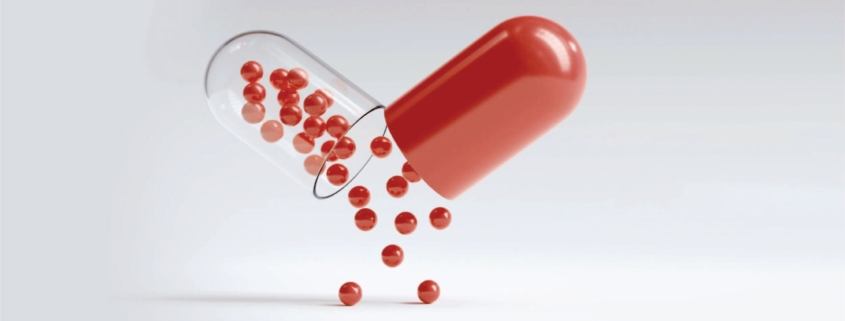When dealing with addiction, finding the right treatment program is vital for recovery. In Ohio, outpatient treatment programs offer flexible solutions for individuals who require therapy and support while balancing everyday responsibilities. At Couples Rehab in Ohio, we are dedicated to helping couples find the most effective outpatient treatment options tailored to their unique needs. This guide will explore various outpatient programs available across Ohio, offering insights into how these programs can benefit you and your partner in your recovery journey.
Introduction: Why Choose Outpatient Treatment?
Outpatient treatment is an excellent choice for individuals who want to maintain their daily lives while undergoing addiction treatment. Unlike inpatient programs, outpatient treatment allows couples to live at home and continue working or caring for their families. It offers flexibility while still providing the structure and support needed to overcome addiction.
Couples Rehab in Ohio specializes in providing comprehensive outpatient treatment options designed to meet the needs of both partners in recovery. Our programs help couples heal together, ensuring that both individuals receive the necessary support and treatment.
Understanding Outpatient Treatment Programs
What is Outpatient Treatment?
Outpatient treatment programs provide individuals with the opportunity to attend therapy sessions and receive addiction treatment while continuing with their daily responsibilities. Unlike residential or inpatient programs, outpatient treatment does not require participants to stay at a treatment facility. Instead, patients can come in for scheduled sessions and return home after their treatment.
Outpatient programs offered by Couples Rehab in Ohio include individual therapy, group therapy, family counseling, and specialized programs that address the unique needs of couples. These programs provide a balance of flexibility and structure, allowing couples to work together toward recovery.
Benefits of Outpatient Treatment for Couples
Flexibility: Outpatient programs allow individuals to maintain their work, family, and social obligations while undergoing treatment. This is particularly beneficial for couples who may have children or other responsibilities at home.
Continued Support: By attending outpatient treatment, couples can receive ongoing therapy and support without interrupting their daily lives. This makes the transition to long-term sobriety smoother.
Affordability: Outpatient programs are often more affordable than inpatient options. At Couples Rehab in Ohio, we provide cost-effective outpatient programs, making high-quality addiction treatment accessible for couples across the state.
Customized Care: Outpatient treatment programs can be tailored to fit the specific needs of each individual and couple. At Couples Rehab in Ohio, we offer personalized plans that address the root causes of addiction and the dynamics of the relationship.
Types of Outpatient Programs Available in Ohio
1. Intensive Outpatient Programs (IOP)
Intensive Outpatient Programs (IOP) are designed for individuals who need more support than standard outpatient treatment but do not require the intensity of residential programs. IOP typically involves multiple therapy sessions per week, focusing on individual and group counseling, life skills development, and relapse prevention.
Couples Rehab in Ohio offers IOPs that allow couples to attend therapy together while also working on individual issues. This program is ideal for those who are transitioning from an inpatient program or for couples who need more structured support while living at home.
2. Standard Outpatient Treatment
Standard outpatient treatment offers a more flexible approach, with therapy sessions scheduled less frequently than IOPs. This program is perfect for individuals who have completed more intensive treatment or who have a lower risk of relapse.
At Couples Rehab in Ohio, our standard outpatient program includes therapy sessions that focus on building communication skills, resolving conflicts, and fostering healthy relationship dynamics, helping couples maintain long-term sobriety.
3. Dual Diagnosis Outpatient Treatment
Many individuals struggling with addiction also face mental health challenges. Couples Rehab in Ohio offers dual diagnosis outpatient treatment, which addresses both addiction and co-occurring mental health disorders such as depression, anxiety, or trauma.
By treating both conditions simultaneously, couples can achieve a more holistic recovery. This program includes therapy sessions with mental health professionals, medication management, and support groups specifically designed for individuals with dual diagnoses.
4. Medication-Assisted Treatment (MAT) Programs
Medication-Assisted Treatment (MAT) combines medication with counseling and therapy to treat substance use disorders, particularly opioid and alcohol addiction. MAT can help reduce cravings and withdrawal symptoms, allowing individuals to focus on their recovery.
At Couples Rehab in Ohio, our MAT outpatient program provides a supportive environment where couples can receive medication as part of their comprehensive treatment plan. We offer regular monitoring and counseling to ensure that MAT is effective and that both partners are progressing in their recovery.
5. Telehealth and Virtual Outpatient Programs
With the rise of telehealth services, virtual outpatient programs have become an increasingly popular option for addiction treatment. Virtual therapy sessions provide the same level of care as in-person treatment but offer the convenience of attending from home.
At Couples Rehab in Ohio, we offer virtual outpatient programs that allow couples to participate in therapy together without needing to travel to a facility. This is particularly beneficial for individuals living in rural areas of Ohio or those with transportation challenges.

Outpatient Treatment Programs in Ohio by Region
Ohio is home to a wide range of outpatient treatment options across different regions. Below, we explore the specific programs offered in various parts of the state.
1. Outpatient Treatment in Northern Ohio
Northern Ohio, which includes cities such as Cleveland and Toledo, offers a variety of outpatient programs for individuals and couples seeking addiction treatment. These programs include Intensive Outpatient Programs, standard outpatient care, and dual diagnosis treatment options.
Couples Rehab in Ohio provides tailored outpatient programs in Northern Ohio that focus on helping couples work through addiction together. With our virtual therapy options, couples can also access treatment from anywhere in the region.
2. Outpatient Treatment in Central Ohio
Central Ohio, home to Columbus and surrounding areas, is a hub for addiction treatment services. Couples in this region can find outpatient programs that cater to a range of needs, including Medication-Assisted Treatment and telehealth services.
Couples Rehab in Ohio has established comprehensive outpatient programs in Central Ohio, making it easy for couples to find the care they need. Our programs focus on building strong, sober relationships while providing the tools needed to overcome addiction.
3. Outpatient Treatment in Southern Ohio
Southern Ohio, including cities like Cincinnati and Dayton, offers robust outpatient treatment options for individuals and couples. Programs in this region often focus on community support, family involvement, and individualized care plans.
At Couples Rehab in Ohio, our Southern Ohio outpatient programs emphasize the importance of healing within relationships. By working together, couples can support one another through the challenges of recovery, ensuring long-term success.
4. Outpatient Treatment in Rural Ohio
For couples living in rural areas of Ohio, accessing addiction treatment can be challenging. However, outpatient programs, especially virtual options, provide a viable solution for those who cannot travel to major cities for treatment.
Couples Rehab in Ohio is committed to making outpatient treatment accessible to everyone, regardless of location. Our telehealth services allow couples in rural Ohio to participate in therapy and counseling from the comfort of their own home, ensuring they receive the same level of care as those in urban areas.
What to Expect During Outpatient Treatment at Couples Rehab in Ohio
Assessment and Personalized Treatment Plans
At Couples Rehab in Ohio, the outpatient treatment process begins with a comprehensive assessment. This helps our team understand the unique needs of each couple, allowing us to create a personalized treatment plan.
Individual and Couples Therapy
Outpatient treatment includes both individual therapy and couples counseling. These sessions focus on identifying triggers, resolving conflicts, and building healthy communication habits. Couples can expect to attend regular therapy sessions that help them strengthen their relationship while addressing their addiction.
Support Groups and Peer Counseling
Support groups play a crucial role in outpatient treatment. At Couples Rehab in Ohio, we offer group therapy sessions where couples can connect with others facing similar challenges. Peer counseling is also available, providing an additional layer of support throughout recovery.
Aftercare and Relapse Prevention
Aftercare is an essential component of outpatient treatment. Once couples complete their program, Couples Rehab in Ohio offers continued support through aftercare services. These include ongoing therapy sessions, relapse prevention plans, and access to support groups, ensuring long-term sobriety for both partners.
Conclusion: Finding the Right Outpatient Program with Couples Rehab in Ohio
Outpatient treatment offers a flexible, affordable, and effective solution for couples struggling with addiction. Whether you’re in Northern Ohio, Central Ohio, Southern Ohio, or a rural part of the state, Couples Rehab in Ohio has a range of outpatient programs designed to meet your needs.
Our goal is to help couples heal together, providing the support, resources, and treatment needed to overcome addiction and build a healthy, sober future. If you or your partner are ready to take the next step in your recovery journey, contact Couples Rehab in Ohio today to learn more about our outpatient treatment options.

















